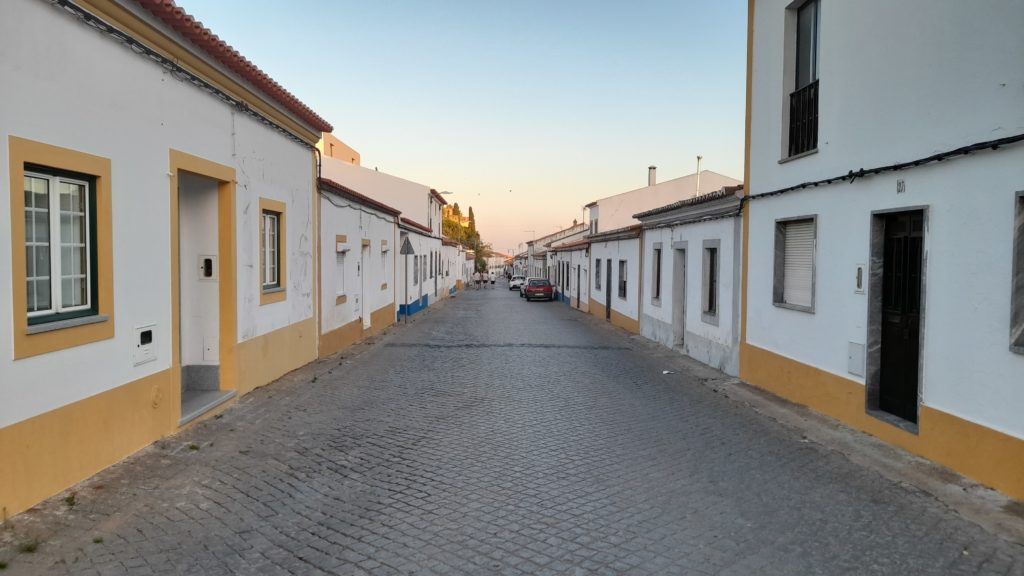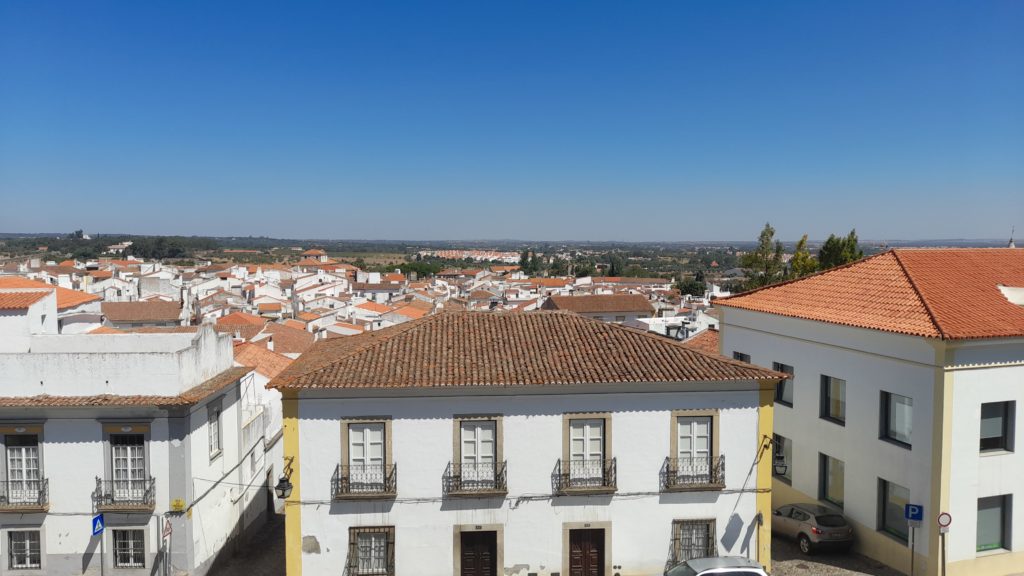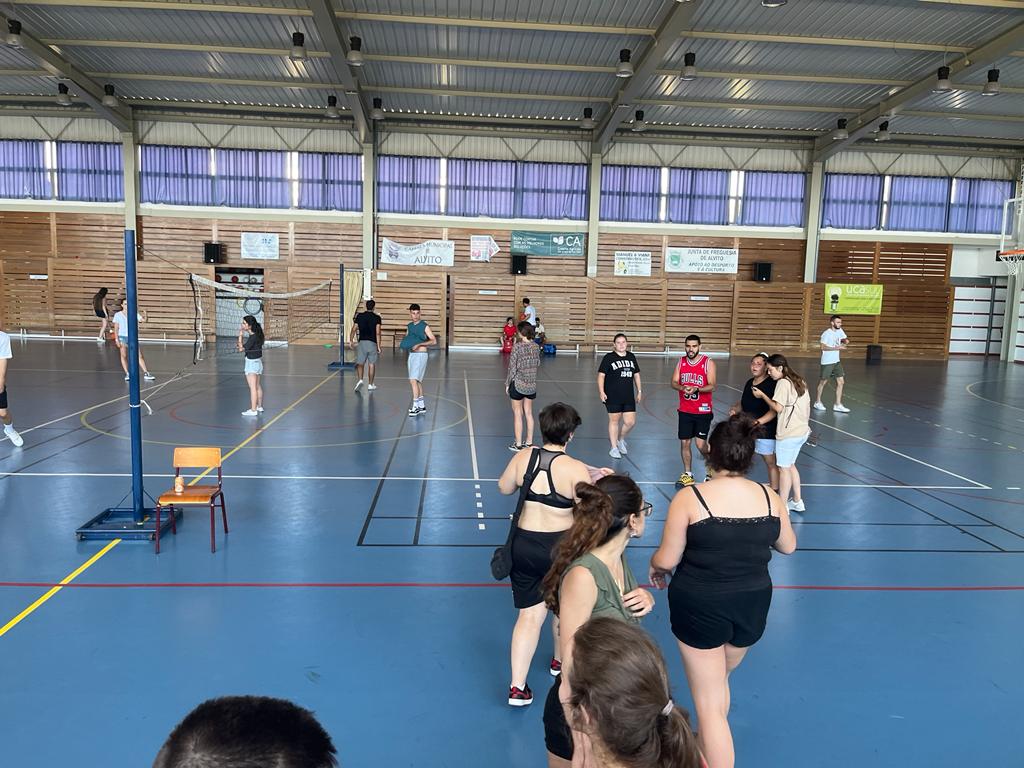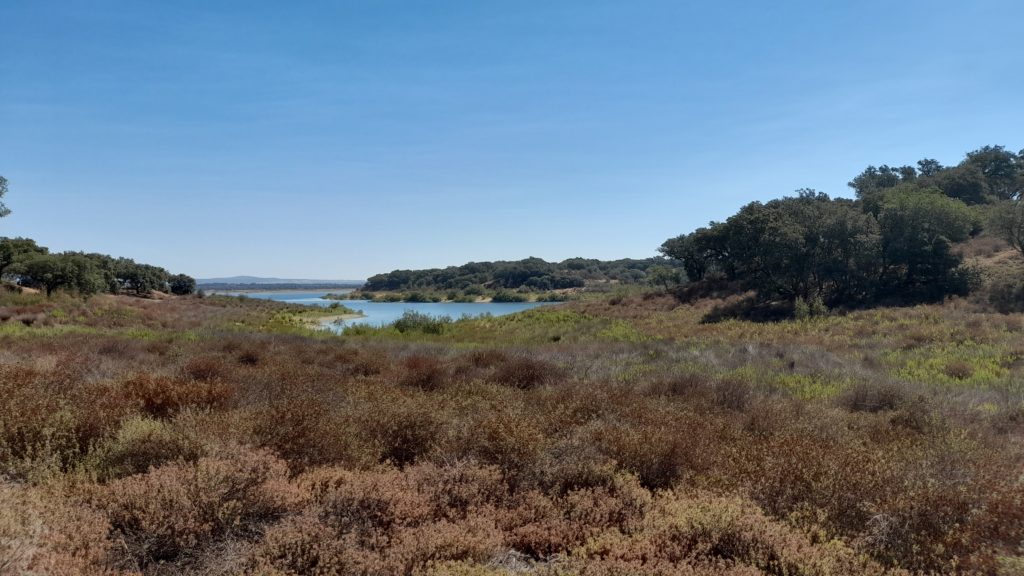Between 2nd and 11th July 2022, two DFs from youth organisation Woodcraft Folk, travelled to a small village in southern Portugal called Alvito, to take part in an Erasmus+ funded project called Winds Of Change.
The project was supported by the Portuguese ‘Informal Group’ and was about active participation and youth leadership.
DF participants Thomas Boxall and Emma Britton-Voss have written an account of the Winds Of Change trip.
On the first day, after meeting most of the group at Lisbon Airport, the group travelled by coach to Alvito where the group began exchanging cultures through sharing music. Upon arriving into Alvito, they were taken out to have a traditional Portuguese meal before playing games to introduce themselves.

On the second day, participants played more introduction games as some groups arrived late at night and an introduction was given to the project. In the afternoon, the group enjoyed some downtime which involved playing a game to explore Alvito, followed by some much needed cool off time in the pool followed by a debrief reflecting on the project so far in small groups. In the evening, everyone began working on plans for the intercultural night.
On the third day, the morning activity was spent recognising the different ways in which people can have an advantage or disadvantage in society based on who they are, their abilities and what the views in society are. In the late afternoon, participants went to a traditional restaurant where they met with the mayor of Alvito and other key members of the municipality. The restaurant prepared traditional Portuguese dishes for the group to try and there was a performance from the local group of traditional singing and everyone found it interesting learning about the origins and history of this custom.

The following day the participants headed to the local school’s sports hall where the French group organised three games for them to play – volleyball; dodgeball; and berret, where you have to race to beat the other team to steal the item. It was really interesting and exciting for the group to see these different games and how they are played in different countries. In the evening, the group had the first intercultural night, where the Italian group made a delicious pasta dish and the French group made crepes with salted caramel for us.

On the fifth day, everyone got the coach to a town called Èvora where time was spent exploring the area and a meet up was arranged with some representatives from different youth organisations in Portugal with an accompanying tour which included a visit to the Capella de Ossos (Chapel of Bones). For this trip, everyone was all given yellow t-shirts to celebrate the European Year Of Youth. Before leaving Èvora, everyone took part in a mid term evaluation. In the evening, we prepared for our intercultural night.
In the morning of the sixth day, the group met up with locals from Alvito who showed the traditional method of painting the walls white. They learnt that a mix of lime and water is used to create a white liquid which is then applied in multiple layers. It is only when the whitewash starts to dry that it’s white colour is visible. The group then had a go at painting a wall in the village and were told that efforts were excellent! In the afternoon, most of the group went to the pool but Emma and I stayed in the hostel to prepare our dish for the intercultural night. We made both plain and fruit scones. That evening was the second intercultural night. The Hungarian group made a traditional antipasti, the Spanish group made tapas with a Spanish omelette served with meats and cheeses and we served the scones with jam and cream and a cup of tea. After dinner, the Spanish group served some of their traditional alcohol and we had a party to celebrate the project so far.
On the seventh day, the group got the coach to the local reservoir and went for a walk in the surrounding area. Everyone was due to have a BBQ lunch at the reservoir but due to a wild fire warning being in place, this was called off and the BBQ was held in Alvito instead.

Then for the last full day in Alvito the group took a bus to Monseraz where there is a mediaeval city which is both a tourist destination and a place where people live. One tradition of Monsaraz is that on the second Saturday in September there is a bull fight. We had an hour to explore the city, answer the questions that we were given and make a video about the city. After exploring the city, we spent the rest of the afternoon at the lake relaxing and swimming. Lake Alqueva is the largest human made dam in Europe. That night was the last intercultural night with Portugal, Romania, and Estonia. Portugal presented typical snack foods such as olives, cheese, and beer and hosted a quiz about Portugal. Romania shared a typical breakfast dish made from polenta and cheese. Estonia gave a short presentation about Estonian language, geography and culture, they then shared some traditional Estonian songs and people danced. The Estonian food was several chocolates, hazelnut and a pudding flavour that is only found in Estonia, black bread and fish and Estonian spirits.
The last day we reflected and had a summary of the past days and shared pictures taken with everyone. After lunch we packed and travelled back to Lisbon and spent the last night there where some people went to a party and others explored the city. During free time throughout the week, some groups played music to each other. It was amazing to see that as well as music in their own languages and from their own countries there was also quite a lot of music they knew which was in English.
You can find Woodcraft Folk’s upcoming international opportunities here
